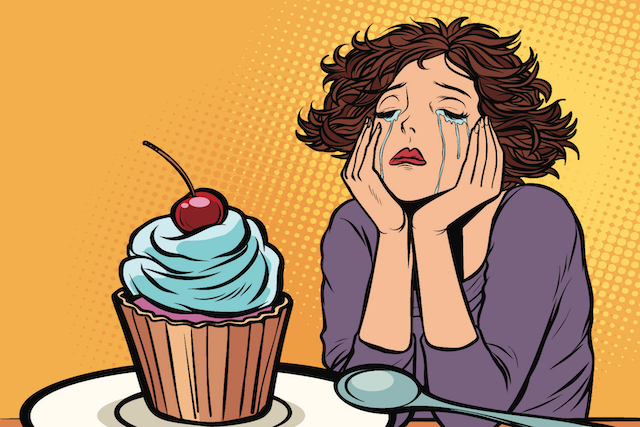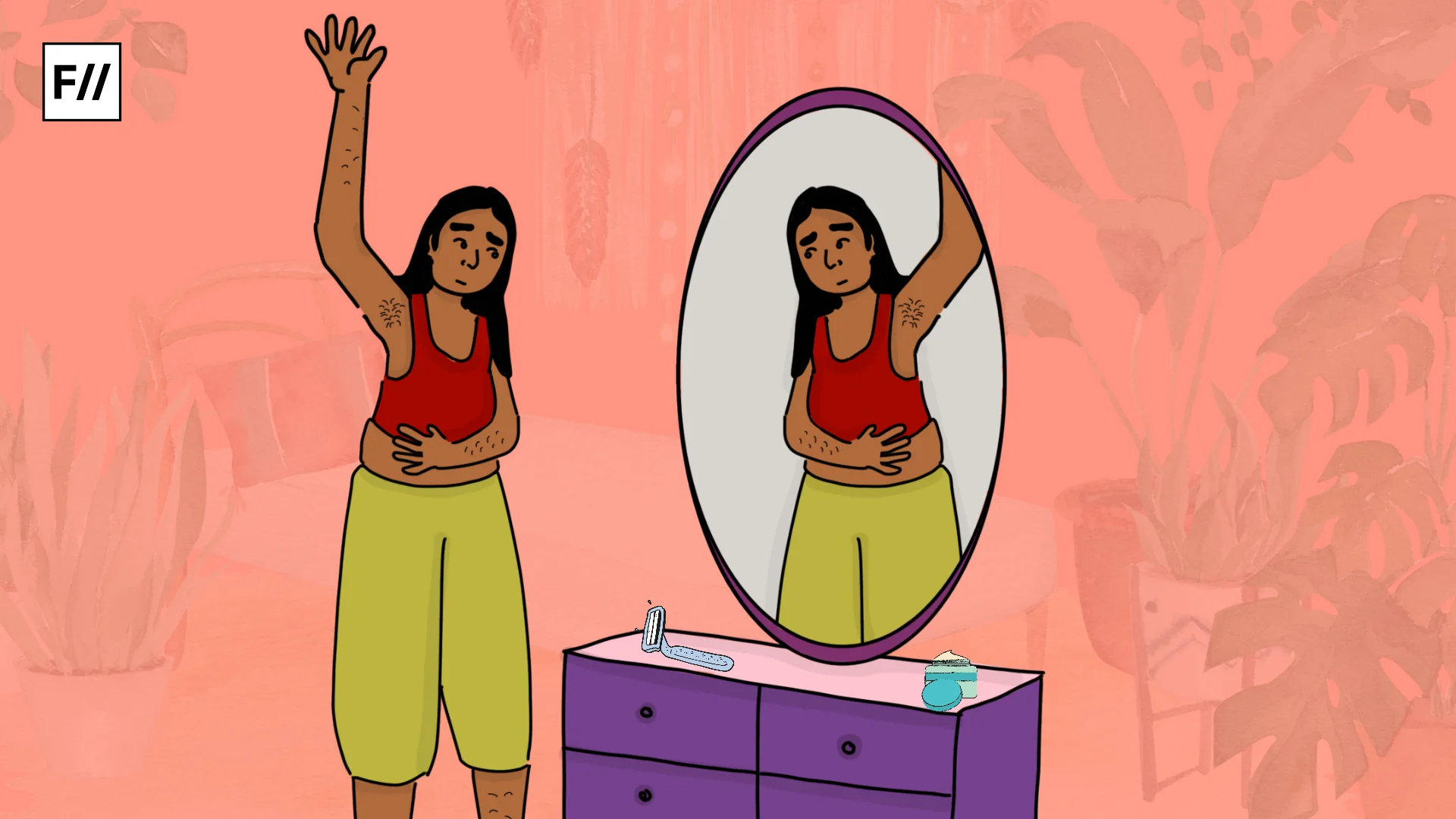Food shaming is a concept associated to body shaming (shaming one on their body appearance- typically size) and weight-watching (obsessively maintaining an ‘ideal’ weight). While food shaming is defined as the act of shaming one on their food choices, it bears a heavy psychological impact that may result in body image issues, mental health problems, eating disorders and various forms of body dysmorphia.
Food shaming is so common that it starts as early as a child is born and continues till the person can no longer make their own food choices. Most people who go through food shaming are clinically diagnosed as obese a.k.a. fat people or extremely thin. But many people who fall in between this rather vague demarcation also experience subliminal and sometimes overt messaging about watching what they eat.
The idea is that either end of the spectrum – morbid obesity or skinniness, are undesirable, so shamers take it upon themselves to provide unsolicited food advice to help others who, in their opinions, don’t know any better.
However, no matter how much we sugar-coat these unsolicited and, not to mention, unprofessional and baseless food advices, no one has the right to tell anybody what they should eat and how much of it they should eat unless specifically asked or consulted on for medical reasons. Each body is different and has different needs.
Bear in mind that the appropriate quantity and the choice of food that is shamed are actually standards set in the mind of the shamer, NOT the one being shamed. This has been rationalised through the theory of ‘moralisation of food choice’, a concept first introduced by Paul Rozin, a Psychology professor at the University of Pennsylvania. In broad terms, moralisation of food choices relates to how one associates certain foods as ‘good’ and ‘bad’ depending on their own moral compass. For instance, a vegetarian would criticise the food choices of someone who eats meat and eggs. Similarly, a vegan may criticise the food choices of a vegetarian
What does food shaming sound like?
Unlike direct shaming or spouting words of humiliation, food shaming may masquerade as a harmless comment that comes from a ‘place of concern‘ by our own friends and family members, and also sometimes, from complete strangers at the supermarket aisles.
If you hear comments like, “Do you really want to eat that”; “You know you shouldn’t eat that”; “Are you sure you want to take the extra serving?”; “why aren’t you eating more”, “you should eat this, this is good for you”, etc, run the other way! These are all forms of judging you for your food choices.

But what are food choices that lead to shaming and how do they affect our health?
What we eat and how much we eat are both dependent on individual body metabolism and on geo-cultural, social factors such as availability of food in terms of local accessibility and expenses, and social and cultural food habits of the communities we may belong to such as veganism, non/vegetarianism, etc.
While we may not always have control over what goes on our plate, we do have more sense of control over how much goes on the plate and how much we end up eating. When one is shamed for their choice of eating too little, eating too much or choosing to eat something over the other, we call that portion shaming or food shaming.
Also read: Eating As An Act Of Feminist Resistance: Assertion Of Need & Leisure Through Ingestion
But how does one escape this subliminal messaging and constant judgement over food choices? That may seem like a difficult endeavor but one has to go through their own food journey to understand what works for them and stick to it or consciously ask their doctors or trainers for guidance. One should be aware that what works for others, may not work for them. One should strive to eat a balanced diet and not deprive one of their cravings
Bear in mind that the appropriate quantity and the choice of food that is shamed are actually standards set in the mind of the shamer, NOT the one being shamed. This has been rationalised through the theory of ‘moralisation of food choice’, a concept first introduced by Paul Rozin, a Psychology professor at the University of Pennsylvania. In broad terms, moralisation of food choices relates to how one associates certain foods as ‘good’ and ‘bad’ depending on their own moral compass. For instance, a vegetarian would criticise the food choices of someone who eats meat and eggs. Similarly, a vegan may criticise the food choices of a vegetarian.

The effects of such moralisation becomes harmful when a heavier person is criticised on what and how much they eat as ‘being fat‘ is already considered undesirable. Rampant fatphobia, which manifests in forms of systemic judgement and limiting work opportunities and access to quality health care and the fear of becoming fat, is one reason why people take it upon themselves to watch what they and others around them eat.
Of course, subliminally messaging a growing child to eat ‘good’ foods can result in food related disorders and mental illnesses. Encouraging healthier food habits and policing someone for the food they eat are two different things. Apart from food shaming that comes from direct social interaction like family, friends, peers and random strangers, what if your doctors themselves judge you for your food choices and randomly give you a dietary plan you didn’t even ask for? That is also food shaming!
Unfortunately, doctors aren’t sensitised to fatphobia as one might assume. Many ‘fat‘ people and women face discrimination in health care, and they are sent back saying they need to lose weight for proper course of treatment, sometimes without any direct implications. A lot of fatal diseases go undiagnosed because of this rampant fatphobia in the health care system.
How to navigate food shaming
In majority of cases, food shaming leads to a bad relationship with food that manifests in the forms of starvation, anorexia or extreme binge eating. Of course, this affects both physical and psychological health.
The perception that some foods are ‘good’ and ‘bad’ leads many people to develop guilt over food, where they either avoid it the extent of deprivation which then affects their mental health, or go through unsupervised crash dieting which results in an extremely unhealthy body.
Also read: PCOS And Eating Disorders: The Relationship With Food Is Complicated For People With PCOS
But how does one escape this subliminal messaging and constant judgement over food choices? That may seem like a difficult endeavor but one has to go through their own food journey to understand what works for them and stick to it or consciously ask their doctors or trainers for guidance. One should be aware that what works for others, may not work for them. One should strive to eat a balanced diet and not deprive one of their cravings.
Featured Image Source: IrritableBowelSyndrome.net
About the author(s)
Aarthi (she/they) is a young feminist, currently based out of Jodhpur, who enjoys writing on pop culture and art-related subjects. Through her writings, she attempts to position herself between self-reflection and social conversation leading to the exploration of unconventional ideas. In her free time, she travels, writes poetry, watches films and anime



